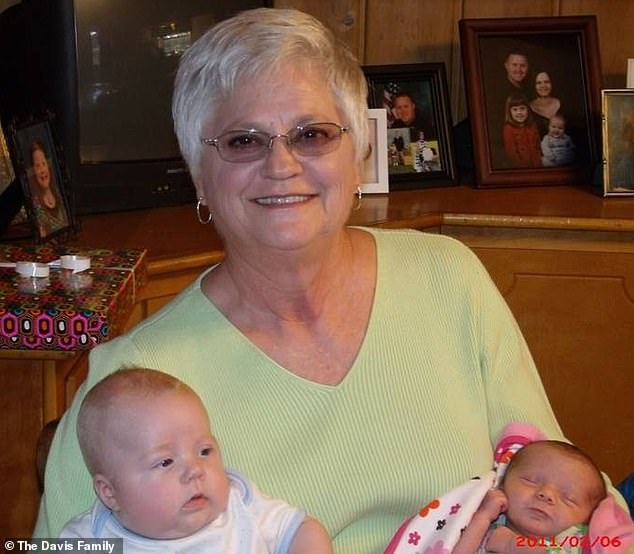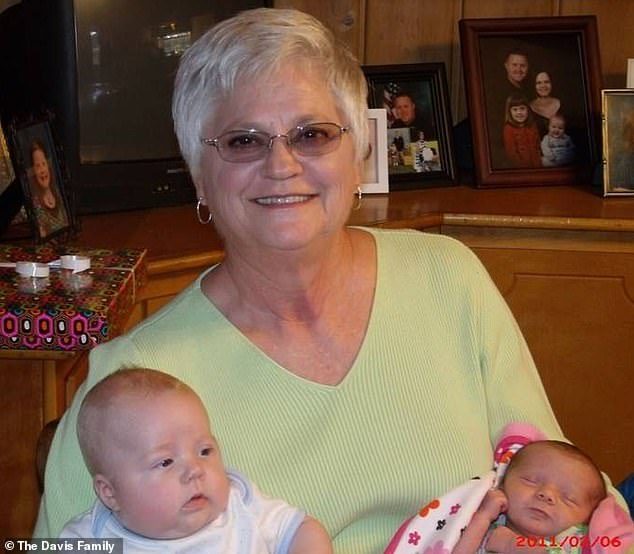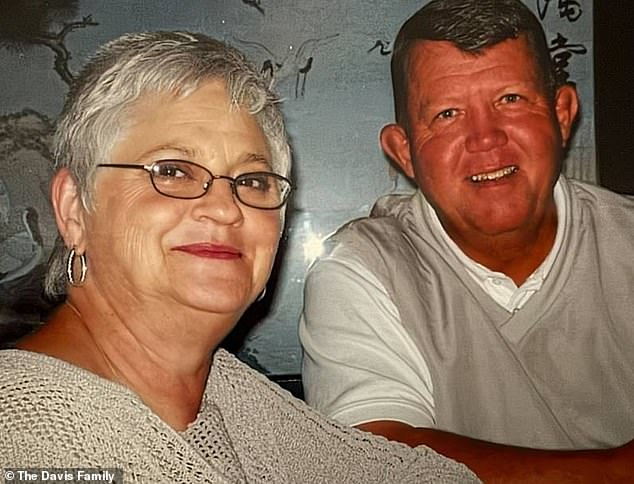Woman dies hours after doctors dismissed her stomach pain as ‘normal’ following routine procedure





An Alabama grandmother died just hours after a simple procedure after doctors failed to treat her for persistent pain they dismissed as “normal.”
According to her family and a jury of 12 strangers, the death of 71-year-old Anne Davis could have been prevented. After only an hour of deliberation, the jurors found that doctors at Wiregrass Surgical in Dothan, Alabama, failed to recognize an infection that led to fatal sepsis.
According to a lawsuit filed by Ms Davis’ family, two doctors – her surgeon and his partner – ignored her persistent stomach pain, which lasted about two days after surgery to remove her gallbladder.
When a third emergency room doctor finally took her seriously, he discovered her stomach was filled with bile. She died that same day, a death that advocates say could have been prevented.

Anne Davis, 71, died in 2017 from sepsis after her doctors performing a standard gallbladder removal surgery failed to recognize the symptoms
Anne Davis underwent surgery in September 2017. It is one of the most commonly performed surgical procedures and is often performed using small incisions and a camera, making recovery faster and less painful.
But her recovery was anything but painless.
She was given painkillers and discharged from the hospital. The surgeon assured her that she would have some pain.
Mrs. Davis’ husband Billy called Wiregrass Surgical about Anne’s symptoms and was again told that pain was a normal consequence, according to a report from the Miami Herald.
On September 22, with the pain still severe, Mr Davis took his wife back to the clinic for help. Her surgeon’s partner, Dr Bradley T Marker, again told her her pain was ‘normal’ and gave her another prescription painkiller.
Their daughter, Betsy Davis Swihart, said, “He told my dad it was okay to send my mom home, but then he turned him down and sent him home.”
The doctors’ advice to send Mrs. Davis home was recorded in their medical records.

Dr Bradley T Marker, a physician at Wiregrass Surgical, admitted that he altered his medical notes after Ms Davis became septic to make it appear as if he had previously recommended that she go to the hospital, when in fact he had told her it would be safe for her to go home.
![Anne Davis and her husband Billy [show right] were repeatedly told that her severe post-surgery abdominal pain was](http://usmail24.com/wp-content/uploads/2024/09/89924009-13874599-image-m-28_1726860901280.jpg)
Anne Davis and her husband Billy [show right] were repeatedly told that her severe post-surgery abdominal pain was “normal” and were sent home. When Billy took her to the emergency room, doctors discovered she had an infection that left her septic
When the pain worsened later that night, Mr. Davis called an emergency medical team to take her to a nearby emergency room, where doctors finally took her vital signs and examined her more thoroughly.
According to the lawsuit, her stomach was “full of bile.” Normally, bile stays in the bile ducts and gallbladder, but if a trauma, such as surgery, causes a leak, bile can leak into the abdominal cavity. From there, bacteria enter the area and cause an infection that must be treated quickly.
Although the doctors noted that they gave her permission to go home the first few times they saw Mrs. Davis, one of them attempted to backtrack when she became seriously ill by changing his previous recommendation.
Attorney Leon Ashford said: ‘After [the doctor] comes in and sees her lying on a bed on a ventilator with sepsis, knowing she is going to die, he picks up his dictaphone and dictates a note that says, ‘I told her this morning she had to go to the hospital, and she refused.’

A $6 million lawsuit won by the family alleged that Ms. Davis’ death could have been prevented if her doctors had not treated her
According to Ashley Peinhardt, another attorney on the team against Wiregrass Surgical and its doctors, Dr. Marker said on the stand that he was trying to “paint a different story” that would make the jury recognize that he was blaming the family instead of taking responsibility himself.
The family won the case and was awarded $6 million, although they never received it. Mr. Davis will never see the money. In the seven years since losing his wife, he has developed dementia.
He died last month.
Mrs. Swihart, a special education teacher, said, “My father would have done anything to help my mother, and he tried to do everything he could to help her.”
Mrs. Davis was “like one of those TV moms, like one of those sitcom moms from the ’50s,” her daughter said. She enjoyed gardening, fishing, sewing and caring for her grandchildren.
Mrs Swihart said: ‘She would take my children to school every morning because I had to be at work extra early. I didn’t want to have to drag them along.
‘Mom would often step in. She left huge shoes to fill.’




